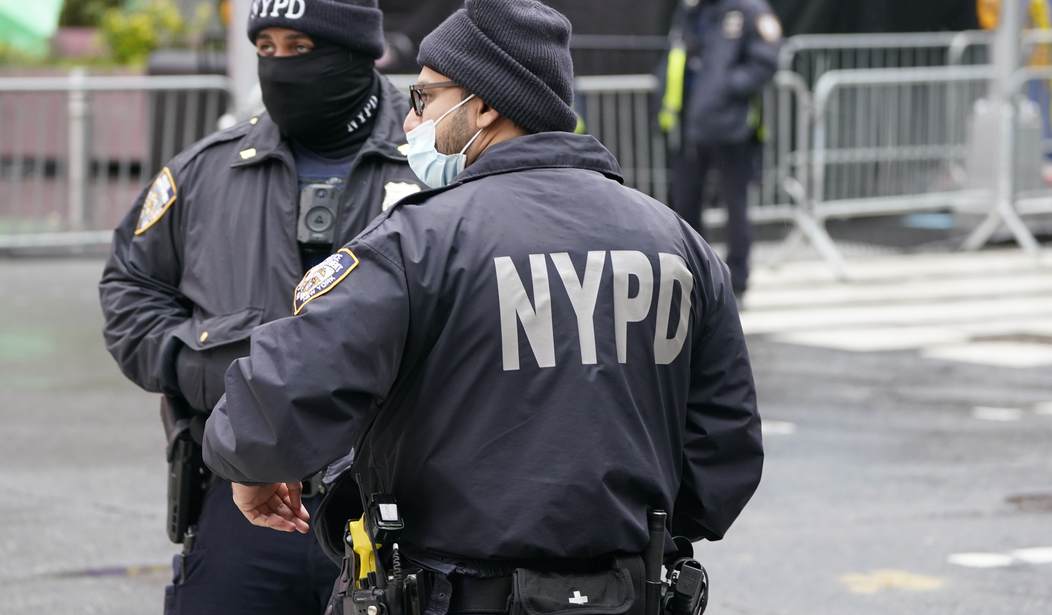The images of despair and death they witnessed that day do not fade when the shift ends. The sounds of sobs reverberating in their ears as they told a devasted mother their child passed do not go away when their shift ends. The day's stress doesn't end after their shift ends. It never ends, and the stigma of seeking help pushes them to bottle their emotions. They bottle their feelings up until there is seemingly no way out or help to save them from taking a final drastic step. But there is help. From peers to professional support, there is help.
Why don't police officers come forward when they are on the edge and the stress is overwhelming? I reached out to Aaron Lohman, a sergeant with the NYPD's Health and Wellness Section, to discuss why officers are not coming forward when they are in crisis. Aaron said, "There are many reasons for this, but number one is most certainly the fear of judgment by fellow cops and their brass. Some departments are coming around, but there are a lot of departments that do not take mental health seriously and treat their members unfairly by stripping them of their guns and badges if they admit they have any sort of problem. This results in loss of wages, overtime, and the feeling of lost identity for some. Being judged by your peers takes a similar route. Cops who identify heavily with "being a cop" don't want other cops to think less of them or that they can't handle being a cop. We rely on each other every day, so no one wants to be perceived as being weak, even though those feelings of judgment by others usually are not true. In cases where cops judge other cops, which happens, it can feel completely alienating, which can turn whatever issues they are having even worse."
Frank, an active Police Officer in New York, knows firsthand what bottling up the stress means. Frank said, "For over a year, I was struggling and battling. Battling with my closest friend and worst enemy, myself. All I kept thinking was, 'If I do this if I ask for help… my gun, shield, ego, reputation, and life… will all be taken from me.' Unfortunately, these are common thoughts for Police Officers. From the start of the academy, you are trained to be a tough officer mentally, physically, emotionally, and you run the show! That's the problem right there, 'a tough Police Officer', but we are more than that; we are humans." So Frank stepped up and founded the non-profit Reps For Responders with the ultimate goal of reducing the suicide rate and also alleviating the mental strain in the first responder community by providing much-needed support.
Recommended
What must police leadership do to help with officers' mental health? I spoke to Chief Deputy Matthew Thomas of the Pinal County Sheriff's Department. Thomas relayed to me, "The profession has to get out of its way as it relates to mental health and resiliency, and we need our leaders to stop pointing backward to the way it has always been done because we have shown that this is just not working. If you lead a law enforcement organization in today's world, one of your priorities has got to be the wellbeing of your staff, and the most significant part of that is their mental health. Not only must you promote this type of atmosphere, but you must have the fortitude to admit and address your own needs in this area. We are cops, but more significant than that is that we are human beings. We are all wired the same, have the same basic wants and needs, and often have the same issues. When we as leaders normalize this, the whole industry and the future of policing in America will reap the benefits."
NYPD's Lohman is a strong advocate of speaking up for police officers and breaking the stigma of seeking mental health help. Lohman says, "It's not going to get better if your department's brass [leadership] doesn't believe in helping their cops, plain and simple. If there is no true buy-in from the department and the department punishes people for seeking help, any tactic you try will be for naught. The only way is to have people who have experienced things and survived them, sought help, and gotten better speak out and speak up. Hopefully, this will cause a ripple effect and show people that they aren't alone and that some of their peers have gotten help and gotten better. The stigma may never go away, but we can start to outnumber the people who stigmatize it. Create a culture in law enforcement that cares about each other as much as we do the public we serve."
A common thread from the police officers I talked to, both for this writing and offline, is that they are facing unprecedented stress in their jobs; from lack of support by their leadership to "defund police" movements to seemingly nowhere to turn when they get to the point of mental numbness. As a result, officers hesitate to come forward, fearing they will lose their livelihood and be removed from the job.
Hundreds of police officers have committed suicide since 2017. We need to do more to help officers before they get to the point of taking their own lives. They protect us; we need to protect them. This goes especially for law enforcement leadership; let your people come forward. As Sgt. Lohman says, Speak Out and Speak Up.
Dr. Jason Piccolo (@DRJasonPiccolo) has over 21-years in federal law enforcement. He is a former U.S. Army Infantry Captain (Operation Iraqi Freedom) and host of The Protectors Podcast.

























Join the conversation as a VIP Member